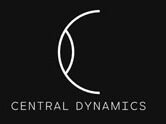Capabilities Adapt as your business grows Take your business on the go Choose cloud or on-premises Be ready for growth Store and transmit data across your systems Extend the solution with industry-specific apps Tailor the software to your needs Work wherever your business takes you,…
Power Platform
The Microsoft Power Platform is more than the sum of its parts. Connect them together—and to Microsoft 365, Dynamics 365, Azure, and hundreds of other apps—and build end-to-end business solutions. Power BI Make informed, confident business decisions by putting data-driven insights into everyone’s hands. Power Apps Turn ideas into organizational…
Integration
Why choose Business Central? Widely supported, Scalable, Easy to Use With such a large number of organizations using the software world-wide, and Microsoft’s extensive partner network, you will not be “locked-in” to a particular provider, and can rest assured that you will be able to…
Automation AL
Microsoft Dynamics 365 Introduction The new all-rounder corporate solution from Microsoft – Dynamics 365 Enterprise – has resulted from unifying the former Dynamics CRM and ERP tools from the Cloud. The software provides you with high-performance functions for finances, sales and purchasing, logistics, production,…





